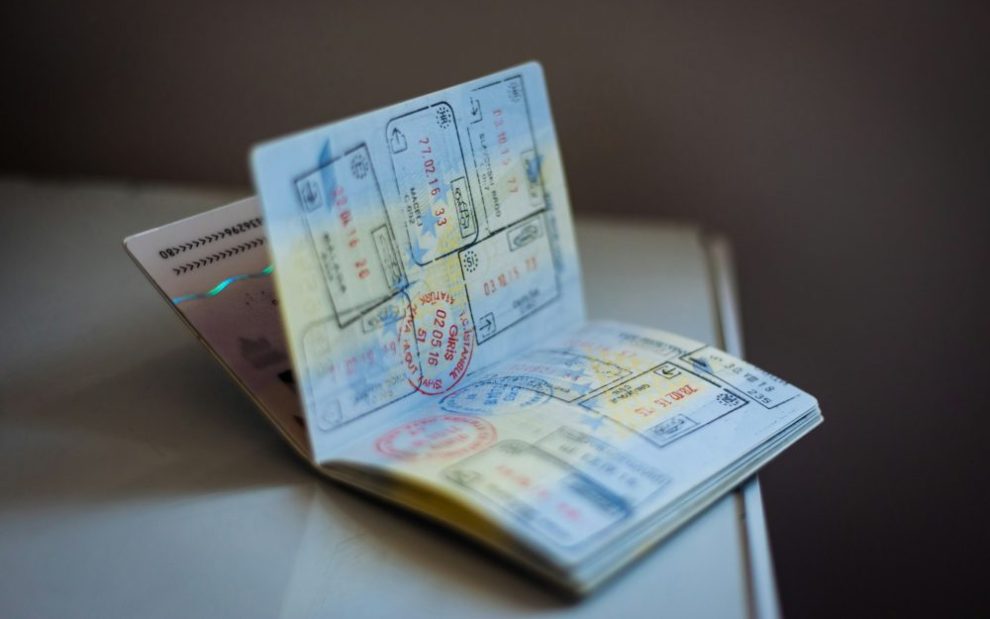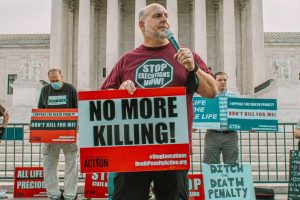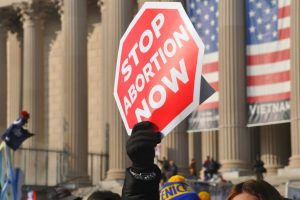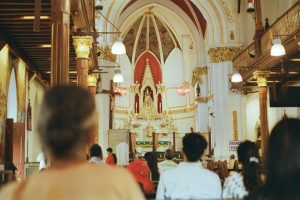Catholics are far from immune to xenophobia. Many white Catholics seemed unbothered by the racist attacks on Catholic Haitians of Springfield, Ohio, following President Donald Trump’s remarks accusing them of eating people’s pets. Indian-Americans have also been targets of racist attacks from the right wing: Trump aide Laura Loomer called Indian immigrants “third world invaders from India.” And some Christians, including Catholics, have exacerbated bigotry toward Indian-Americans this with hate speech about Hindus. For instance, in September 2024, Catholic convert turned right wing influencer Taylor Marshall tweeted offensively about the Hindu religion.
This is personal to me, as my own parents were immigrants from India. And dehumanizing words like these matter. The racist rhetoric has the direct trajectory of causing me, or someone who looks like me, to be the next target of a hate crime.
Yet not everyone who demonizes immigrants is opposed to welcoming all foreigners. Recent right-wing infighting over H-1B visa eligibility reveals there is a contingent within that camp that recognizes the value that immigrants offer the United States. While Elon Musk and Vivek Ramaswamy (the latter of whom is also an Indian-American) advocate for this visa program, MAGA extremists uphold barriers against allowing this form of immigration, out of the false fear of foreigners supposedly taking jobs away from Americans.
And this turmoil over the H-1B visa program is also personal for me: Indians represent 72 percent of the H-1B visa recipients.
Unfortunately, this desire to support the H-1B visa program does not appear to stem from a belief in the inherent dignity of the foreigners applying to this program, but rather from a view of these workers’ utility. This is an old play out of the playbook that predated the H-1B program that utilizes immigrant workers when expedient, while deterring immigrant workers when they are not needed. For instance, the Bracero Program enabled farm owners to utilize Mexican laborers when demand was high, while deporting said individuals once the work was no longer needed. Then as soon as work needs rose, the blockade ceased and landowners welcomed foreign laborers.
The H-1B immigrant, though highly educated and offering a unique expertise, really is viewed in a similar manner as the Mexican laborer. Ramaswamy’s remarks on these immigrants make no mention of rights of dignity, but only on respective demographics’ contributions to the market.
How should Catholics react to the H1-B visa debate?
First, Catholics need to be aware that nativism is an intrinsically evil doctrine that every Christian must reject. As the U.S. Conference of Catholic Bishops states in Welcoming the Stranger Among Us,
“Nativism” assumes that there is just one image of a “real American” and that immigrants either cannot live up to it or willfully refuse to do so. Originally directed against Catholics of all sorts, today such nativism can be seen in a campaign against “multiculturalism” in all its forms, on the premise that reverence for distinctive traditions and histories undermines the unity of American society.
The belief in “one image” of a “real American” contradicts the premise that all humans are created in the image of God (imago Dei) and thus have infinite dignity. Gaudium et Spes (Pastoral Constitution on the Church in the Modern World) affirms the imago Dei as central to scripture and church teaching.
Views such as that of Marshall, even if limited to his uncharitable caricature of Hinduism, are diametrically opposed to Catholic teaching and tradition. Even in the era of the early church, St. John Chrysostom promoted the universal, multicultural nature of the Body of Christ and especially as this extends to the Indian people: “Christ makes a single body. Thus he who lives in Rome may look on the Indians as his own members.”
Denying the infinite dignity of all persons, who are made in the image and likeness of God, is outright heresy. One cannot deny the dignity of all and also claim to follow Christ, who treated Gentile and Jew, Samaritan and Israelite, not only as his neighbors but his family.
The U.S. bishops need to offer a complete and total repudiation of nativism. The land named the “United States” was usurped from the Indigenous people by European colonists holding Christian (and even Catholic) banners. It is ironic that people who descended from colonizers would claim to be native to this soil. The very least the church can do is denounce this nativism that is fueled by the false belief of supremacy embraced by colonizers.
And Catholics should situate support for H-1B visa applicants within the church’s broader call to welcome the stranger and treat them as we would Christ (cf. Matt 25:40). This resonates with Catholic teaching’s notion of the common good, the promotion of the dignity and the flourishing of the human person, created in the image of God. The church designated this premise within the context of the human person in a social and political environment.
In Laudato Si’ (On Care for our Common Home), Pope Francis connects the common good with the fundamental rights of all persons.
Underlying the principle of the common good is respect for the human person as such, endowed with basic and inalienable rights ordered to his or her integral development.
The common good is a holistic view on humanity and does not favor certain groups over others. The highly skilled should not have more rights than others. As such, Catholics must use their voice in the social and political realm to promote the inalienable rights of all people. This would include supporting both the sought after technical professionals from overseas and the undocumented immigrants threatened with mass deportations.
So Catholics can (and should) support the protection of the H-1B visa program, while recognizing that the dignity of these visa candidates does not rest solely in their educational and career skills, but in their totality as God sees them and created them to be. The obligation to protect immigration should not be limited to the H-1B visa program, but to all persons who are seeking to come to the United States. While corporations favor highly skilled foreign workers who can boost profitability, the gospel teaches us to prioritize the poor and the marginalized.
When you hold a banquet, invite the poor, the crippled, the lame, the blind; blessed indeed will you be because of their inability to repay you. For you will be repaid at the resurrection of the righteous (Lk 14:13-14).
The church’s advocacy for the common good means supporting the dignity of all people, whether they be educated H-1B visa candidates or refugees escaping danger. May we all answer Christ’s call to defend and support the marginalized and uphold the inherent dignity of all peoples.
Image credit: Global Residence Index













Add comment